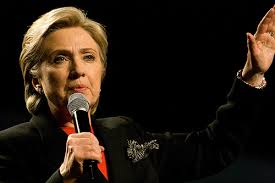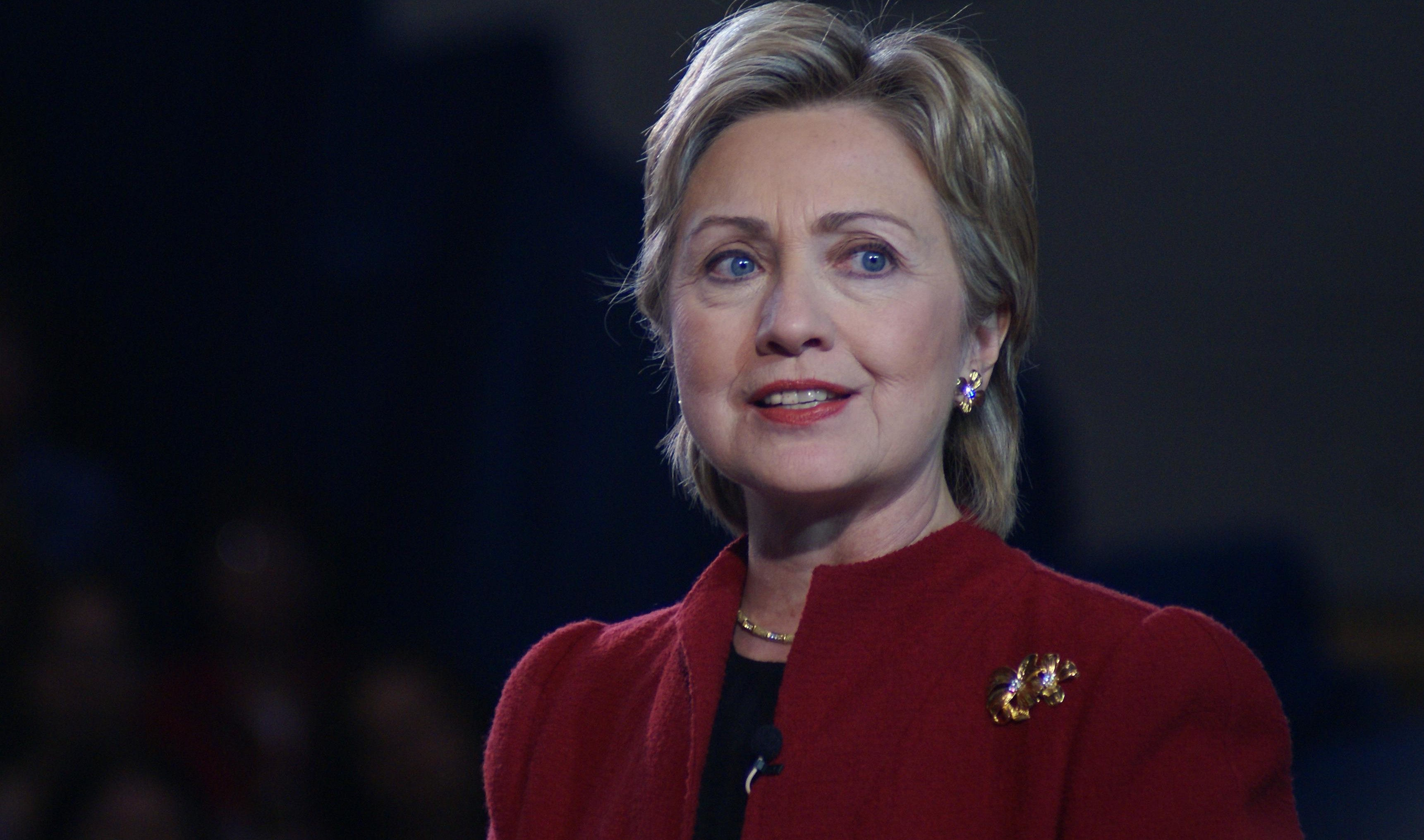Hillary Clinton’s 2008 primary run took a bite out of the expectation that she would receive a substantial chunk of the female vote: Clinton scraped up 50% of women’s votes, but that 0-percentage-point margin wasn’t enough to help her topple the lush-speaking Barack Obama. Neither did Hillary receive the support of many top female politicians; even Amy Klobuchar and Claire McCaskill threw their names behind Barack.
Now, there’s a new woman that Clinton will have to face: ex-Presidential candidate Michelle Bachmann, who recently attacked the “godmother of Obamacare,” declaring from what Bachmann’s spokesman Dan Kotman called “her own personal experience” (because who needs polling and academics, right?) that a Hillary loss was imminent.
Bachmann’s got herself a litany of anti-feminist sentiments in her Hillary-critique, but first she decides to attack another group in society: African Americans. This colorful statement: “I think there was a cachet about having an African-American president because of [civil rights] guilt,” reveals a two-fold ignorance. Not only does it dismiss the agency of any white individual whose vote was not about guilt or color, but about choosing their preferred candidate on political criteria, it more importantly negates the entire set of President Barack Obama’s achievements and goals before and during office, while also trying to imply that thousands of years of slavery and oppression could even be remedied with a single vote.

Bachmann goes on to claim that there “is no pent up desire to call someone Madame President,” as if the pent up desire for a black president is all that got Obama elected, but there’s no corollary for Clinton. First, her comment is irrelevant. The paucity of the percent of the female vote Clinton got in 2008 should indicate that voters don’t want Clinton for her gender so much as her mind. Second, Bachmann’s claim is simply untrue. We can’t ignore the fact that Clinton is the Democratic favorite for the presidential primaries, with qualified men like Joe Biden, who are thinking about running but are yet largely ignored by the media in the midst of the Clinton-frenzy. If Ready for Hillary doesn’t show a desire for Madame President, then I don’t know what does. Even recent polls (although Bachmann, of course, has no use for such petty tools) show Clinton ahead of the pack of 2016 potentials. And Hillary remains a feminist icon: We can’t pretend we haven’t seen the picture of Clinton posing with Pussy Riot protestors at the Women in the World Summit Conference. After 44 male presidents, 43 of them straight, white, and cis-gendered, a female president is undoubtedly a solid move towards achieving gender equality. Putting a female in the White House as Commander-in-Chief takes Clinton’s description of herself on Twitter as “a glass ceiling cracker” one step forward.
But its not just rising above the seemingly impenetrable glass ceiling that has hovered above our government for centuries. Two significant changes will come about if Clinton is elected.
First, there will be a greater concern for policy reform in regard to many feminist issues that can simply be better understood and pushed forth with increased female representation. Abortion, same-sex marriage, mammograms, contraceptives and maternity leave all come to mind. It is quite difficult to fully grasp these issues without being a woman—as the recent slew of ridiculous proposals and statements from conservative men should show (even Boehner thinks Republicans need sensitivity training). Part of this is the simple fact that people everywhere will be forced to accept the notion that women are just as capable as men. Young girls’ cries of “I want to be President when I grow up” will, for the first time, be backed by an unprecedented level of estrogen in the Oval Office.
The United States, a nation thought to be at the forefront of human rights and advanced feminist frameworks, isn’t just behind the times on electing a female head of state (unlike Norway, Latvia, Thailand, Jamaica, Mali, Australia, Trinidad and Tobago…the list goes on), it also has yet to sign the Convention on the Elimination of All Forms of Discrimination Against Women (CEDAW). It is joined in this unfortunate status by only 7 other nations on this planet. With a Madame President in office, we would be sending a collective message to all those who turn to the United States as a source of righteousness or leadership—especially on human rights and women’s rights. While the effect wouldn’t be immediately apparent, a natural progression towards a norm of female leaders, instead of female leaders as an exception, would likely be the ultimate result.
Secondly, international relations can certainly benefit from feminist influence. A relatively new field of feminist political science has brought forth an idea that internal and international dynamics of sexist reflect the overall political dynamics between nations as well; Ann Tickner’s critique of a common theory on the understanding of international relations—realism—has been instrumental in shaping this new understanding. Tickner argues that if politics are to be based on human nature, then we must encompass all of human nature—both male and female. What we currently have instead, she posits, is a version of politics dominated by masculine characteristics such as rationality, objectivity and a lack of emotion. Tickner posits that political realism’s obsession with these masculine characteristics and, more importantly, with power, endangers incomprehension of the moral impacts of political actions. A feminist influence, Tickner claims, would lead to greater chances of conflict resolution and enhance mutual dependence on other nations. Clinton strikes the perfect balance between Ticker and conventional realism. She certainly has not led with a soft hand, endorsing intervention into Syria and even voting unapologetically for the Iraq War. But her tenure at the state department shows a Hillary with the ability to make friends; her Pivot to Asia and Reset Russia campaigns show an understanding of the significance of allies—and a critical comprehension of how to acquire and maintain them. If Hillary can make friends abroad, perhaps she will also be able to make them at home. It certainly seems as if the American public—or, at least, the American liberal public—is excited for Hillary to be the next candidate they get to sit down and have a beer with.
